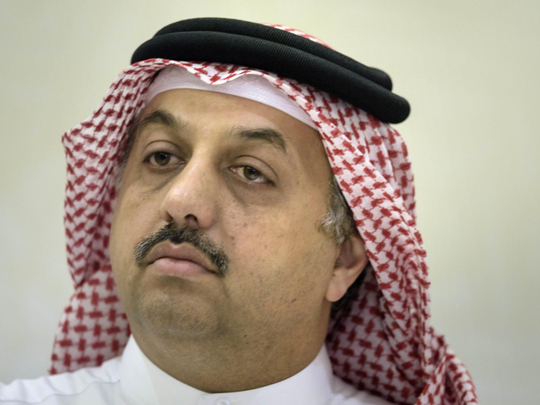
Doha: Qatar’s top diplomat on Tuesday called for deeper engagement with Iran in the wake of Tehran’s nuclear deal with world powers, saying there is a need for “serious dialogue” to solve challenges facing the region.
Foreign Minister Khalid Al Attiyah made the comments in a wide-ranging interview that also touched on the controversy surrounding Qatar’s hosting of the 2022 World Cup and allegations of Doha’s links to Islamic militant groups.
He spoke a day after US Secretary of State John Kerry met with the six-member Gulf Cooperation Council in Qatar to reassure them of America’s commitment to their security in the wake of the deal, which gives Iran broad sanctions relief in exchange for guarantees it won’t build a nuclear bomb.
The Gulf states have welcomed the deal despite deep-seated mistrust of Iran, a non-Arab power that they see as increasingly assertive through its support for sympathisers and militant groups throughout the region.
Al Attiyah said a “firm agreement between the major players and Iran” was the best way to resolve the issue. And he suggested there was now scope to work with Iran on other issues too.
“We should have a serious dialogue with our neighbor, the Iranians, and ... lay down our concerns from both sides, and solve them together. Iran is our neighbor in the region. We have to live together,” he said.
Qatar splits control of a vast underwater natural gas field with Iran. It has long positioned itself as a venue for mediating thorny regional conflicts, and it last week hosted a visit from Iranian Foreign Minister Mohammad Javad Zarif, who has made outreach to his Arab neighbors a priority.
But Al Attiyah cautioned that there were still areas of disagreement. More work must be done to build confidence on both sides, including on the issue of “interfering in other countries’ internal affairs,” he said. One major area of disagreement remains Iran’s support for embattled Syrian President Bashar Al Assad, who remains in power after more than four years of civil war that has left at least 250,000 Syrians dead.
“We wish that Iran looked at Syria through the Syrian people and not through the brutal regime,” Al Attiyah said.
Qatar, like other Gulf states, supports the rebel movement fighting to topple Al Assad. It denies backing extremist groups, including Daesh that has seized large parts of the country and neighboring Iraq, or the Al Qaida-linked Nusra Front.
Qatar nonetheless has helped secure the release of hostages held by Syrian rebels, including a group of Greek Orthodox nuns and American journalist Peter Theo Curtis held by the Nusra Front last year.
Al Attiyah said Tuesday those negotiations happened with the help of intermediaries in Syria. He denied that his country was in direct contact with the group, and he expressed hope that Al Nusra will drop its ties to Al Qaida.
“All these rumors against Qatar defending the extremists or supporting the extremists in Syria has no truth,” Al Attiyah said.











